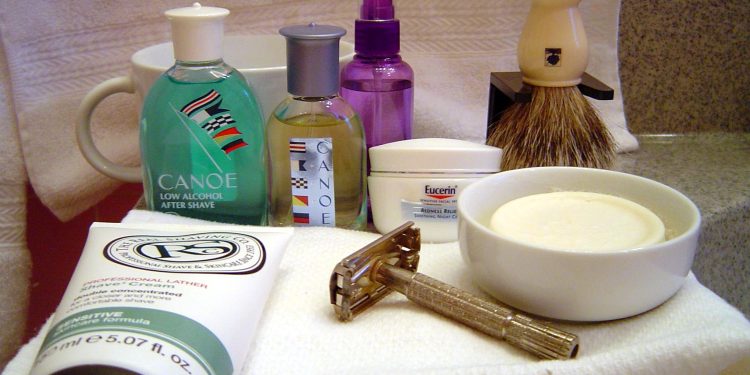When it comes to skincare, the time of day plays a crucial role in determining which products to use and how to care for your skin. Morning and night skincare routines have distinct purposes, each tailored to meet the unique needs of your skin at different times of the day. While a morning routine is designed to protect and prepare the skin for environmental stressors, a nighttime routine focuses on repairing and nourishing the skin after a long day. In this article, we’ll explore the key differences between morning and night skincare routines, why both are essential, and how you can craft the perfect regimen for glowing, healthy skin.
1. The Morning Routine: Protection and Prevention
The primary goal of a morning skincare routine is to protect your skin from external aggressors, including UV rays, pollution, and free radicals. During the day, our skin is constantly exposed to various environmental factors that can cause damage and accelerate aging. A well-planned morning routine ensures that your skin has the defenses it needs to stay healthy and resilient.
- Cleanser: Start your morning routine by cleansing your skin to remove any excess oil, sweat, or product residue from the night before. For morning cleansing, a gentle, non-stripping cleanser is ideal, as it helps freshen the skin without compromising the natural moisture barrier.
- Toner: After cleansing, apply a toner to balance your skin’s pH and provide a refreshing layer of hydration. Look for toners that contain soothing ingredients like rose water or chamomile, especially if you have sensitive skin.
- Antioxidant Serum: Antioxidants are crucial in the morning because they help neutralize free radicals and protect the skin from environmental damage. Vitamin C is a popular antioxidant that not only shields the skin from oxidative stress but also brightens the complexion. Apply a few drops of an antioxidant serum after toning.
- Moisturizer: Moisturizing in the morning is essential to keep your skin hydrated throughout the day. Opt for a lightweight, hydrating moisturizer that suits your skin type. Gel-based moisturizers are great for oily skin, while creamier formulations work well for dry skin.
- Sunscreen: The most important step in any morning skincare routine is sunscreen. UV radiation is a major cause of premature aging, hyperpigmentation, and skin cancer, so it’s vital to apply a broad-spectrum sunscreen with at least SPF 30 every morning. Sunscreen acts as a shield, protecting your skin from harmful UV rays and helping prevent long-term damage.
2. The Night Routine: Repair and Restore
The focus of a nighttime skincare routine is on repairing and restoring the skin after it has faced the stresses of the day. During the night, our skin enters a regenerative phase, making it the perfect time to use products that support cell renewal, hydration, and recovery.
- Double Cleanse: The first step in a nighttime routine is cleansing, but for the evening, consider using the double-cleansing method. Start with an oil-based cleanser to break down makeup, sunscreen, and excess sebum. Follow up with a water-based cleanser to remove impurities and ensure your skin is thoroughly clean.
- Exfoliation (Optional): Exfoliating is not required every night, but incorporating it one to three times a week can help remove dead skin cells and promote cell turnover. Use a gentle chemical exfoliant like glycolic acid or lactic acid to reveal smoother, more radiant skin. Avoid over-exfoliating, as it can cause irritation and damage the skin barrier.
- Hydrating Toner or Essence: After cleansing, apply a hydrating toner or essence to provide an extra layer of moisture and prepare your skin for the products that follow. Hydrating toners with ingredients like hyaluronic acid or glycerin are perfect for plumping the skin and enhancing absorption.
- Treatment Products: Nighttime is the ideal time to use treatment products that contain active ingredients. Retinol, for example, is a powerful ingredient that promotes cell turnover and reduces the appearance of fine lines and wrinkles. If you’re new to retinol, start with a low concentration and gradually increase usage to avoid irritation. Other treatment products, such as peptide serums or acne treatments, can also be used depending on your skin concerns.
- Moisturizer or Night Cream: A night moisturizer is usually thicker and richer than a daytime one, as it’s meant to provide deeper hydration and lock in moisture while you sleep. Look for ingredients like ceramides, shea butter, and squalane to nourish and repair the skin.
- Face Oil (Optional): For those with dry skin, adding a face oil as the final step in your nighttime routine can provide an extra boost of hydration and lock in all the preceding products. Oils like rosehip, argan, or marula are great options for helping to repair the skin barrier.
3. Key Differences Between Morning and Night Skincare
While both morning and night skincare routines are vital for maintaining healthy skin, their primary purposes differ significantly. The morning routine is all about protection: guarding the skin against UV radiation, pollutants, and oxidative stress. Sunscreen and antioxidant serums are key players in this routine, as they work together to minimize the damage caused by daily exposure to environmental factors.
The night routine, on the other hand, is focused on repair and recovery. During sleep, the skin goes through a regenerative process, repairing damage, producing collagen, and replenishing moisture. Using treatment products like retinol, exfoliants, and nourishing moisturizers at night helps support these natural processes, allowing your skin to heal and rejuvenate.
Additionally, the types of products used in the morning are often lighter and designed for quick absorption. Sunscreen, lightweight moisturizers, and antioxidant serums ensure that the skin remains protected without feeling weighed down. Nighttime products are generally richer and more intensive, providing the skin with the nourishment it needs to recover.
4. Why Both Routines Are Important
Skipping either your morning or night skincare routine can prevent your skin from getting the full spectrum of benefits it needs to stay healthy. Without a proper morning routine, your skin is more vulnerable to damage from UV rays and pollution, which can lead to accelerated aging and uneven skin tone. Without a nighttime routine, your skin misses out on the opportunity to recover and replenish itself, resulting in dullness and a compromised skin barrier.
By taking the time to care for your skin both morning and night, you create a comprehensive approach that covers all aspects of skin health—protection during the day and regeneration at night. This balance helps keep your skin looking radiant, smooth, and youthful.
5. Crafting Your Perfect Routine
To craft the perfect morning and night skincare routines, it’s important to consider your specific skin type and concerns. Not everyone needs an extensive 10-step regimen—sometimes, sticking to the basics is just as effective. Here are some tips to personalize your routine:
- Identify Your Skin Type: Knowing whether you have oily, dry, combination, or sensitive skin will help you choose products that work best for you. For instance, if you have oily skin, lightweight, non-comedogenic products are ideal, while those with dry skin may benefit from richer, more emollient products.
- Listen to Your Skin: Your skin’s needs can change due to factors like weather, hormones, and stress. During colder months, you may need a heavier moisturizer, while in the summer, a lighter formulation might suffice. Adjust your routine based on how your skin feels.
- Start Slow with Actives: If you’re new to active ingredients like retinol, acids, or vitamin C, introduce them slowly to avoid irritation. Overloading your skin with actives can compromise the skin barrier and lead to sensitivity.
6. Making Skincare a Consistent Habit
The most effective skincare routine is one that you can stick to consistently. Taking just a few minutes each morning and night to care for your skin can lead to significant long-term improvements. Set aside time each day, treat your skincare routine as a form of self-care, and enjoy the process of nurturing your skin.
Incorporating a well-balanced morning and night skincare routine into your daily life can make all the difference in how your skin looks and feels. By understanding the distinct needs of your skin at different times of the day, you can ensure that it remains protected, nourished, and radiant, no matter what challenges come its way.















Discussion about this post